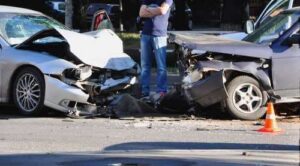A black box, also known as an event data recorder (EDR), is a device in vehicles that captures technical vehicle and occupant information for a short period before, during, and after a crash. In the context of car and truck accident cases in Georgia, the black box serves as a crucial source of information for investigating the circumstances leading up to the collision, determining liability, and reconstructing the sequence of events.
What Is a Black Box?
A black box, also known as an event data recorder (EDR), is a device installed in modern vehicles. The black box in a car or truck can collect and record various data points about the vehicle’s performance, speed, acceleration, braking, steering, and deployment of safety features at the time of the accident.
This data is stored in a secure memory module within the black box and can be retrieved using specialized equipment and software. The data obtained from a vehicle’s black box can help shed light on the cause and severity of a car or truck accident.
Role in Car and Truck Accident Cases
One of the key functions of the black box in car and truck accident cases is to provide objective and reliable information about the events leading up to the collision. By analyzing the data recorded by the black box, accident reconstruction experts can determine crucial factors such as vehicle speed, braking patterns, and driver behavior in the moments preceding the crash.
This information is instrumental in assessing fault and liability, particularly in cases where multiple parties are involved or conflicting accounts of the accident exist. In court proceedings, black box data may be used to corroborate witness testimony, refute false claims, and establish the facts surrounding the accident.
By analyzing parameters such as impact force, seatbelt usage, airbag deployment, and occupant movement, experts can assess the dynamics of the crash. This can help counter attempts by the defense to minimize the severity of the accident.
Admissability of Black Box Data as Evidence
In Georgia, the admissibility and interpretation of black box data in car and truck accident cases are subject to certain legal considerations and procedural requirements. Courts may impose standards for the retrieval, preservation, and analysis of black box data to ensure its reliability and accuracy as evidence in litigation.
Additionally, parties involved in accident cases must adhere to state and federal laws governing the privacy and disclosure of electronic data, particularly concerning the retrieval and use of black box data obtained from vehicles owned or operated by third parties.
In Georgia, courts may admit black box data as expert evidence to support findings of negligence, recklessness, or other legal violations contributing to the accident. The data stored in a vehicle’s black box may be used to corroborate witness testimony, refute false claims, and establish the facts surrounding the accident.
Conclusion
The black box plays a pivotal role in car and truck accident cases in Georgia by providing objective and verifiable data about the circumstances and consequences of a collision. Black box data serves as a valuable tool for legal professionals, insurers, and accident investigators seeking to unravel the complexities of motor vehicle accidents.
Related Case Reference:
Richard A. WILLIAMSON, Trustee for at Home Bondholders Liquidating Trust, Plaintiff-Appellant
v.
CITRIX ONLINE, LLC, Citrix Systems, Inc., Microsoft Corporation, Adobe Systems, Inc., Defendants-Appellees
Webex Communications, Inc., Cisco Webex, LLC, Cisco Systems, Inc., Defendants-Appellees
International Business Machines Corporation, Defendant-Appellee.




